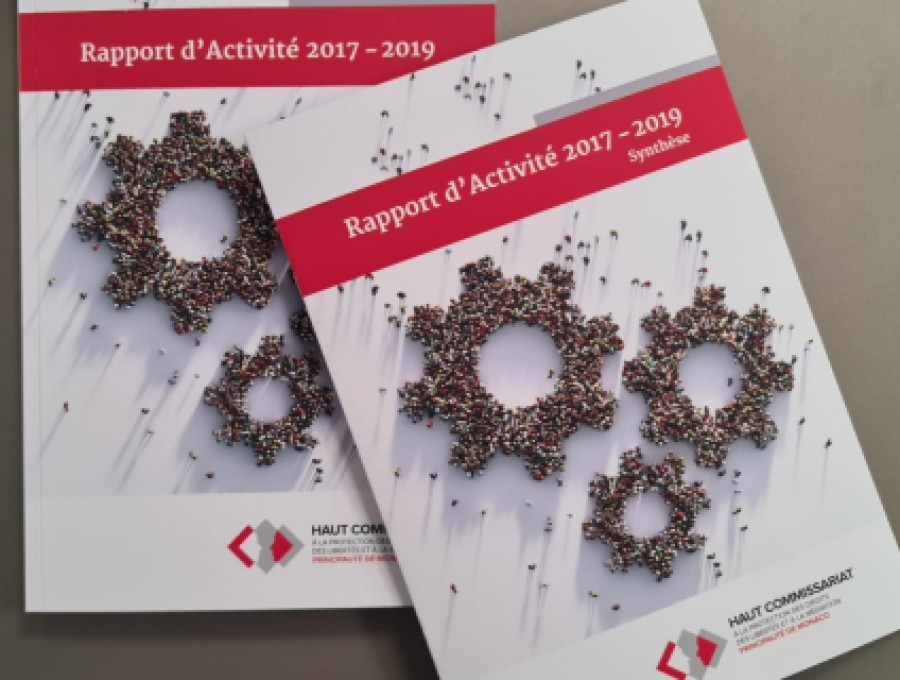The Office of the High Commissioner for the Protection of Rights, Liberties and for Mediation has published its 2017–2019 report, following the report’s formal submission to H.S.H. Prince Albert II on 14 September.
With around 80 new cases referred and some 100 complaints handled each year over the three years, leading to an agreed outcome in a little more than 75% of justified cases, the results of the Office’s activity confirm the success that this independent mechanism of institutional mediation has achieved on behalf of the public, and the credible nature of the amicable resolution it offers to citizens of the Principality.
However, the Office of the High Commissioner notes that this result is too often obtained at the cost of considerable efforts on its part, and that it frequently encounters a lack of honest and transparent cooperation from the Government. This is detrimental to the efficiency of the mechanism, particularly when aspects of administrative policing are involved. The Office of the High Commissioner is also disappointed that more attention has not been paid to the general recommendations that it issues with a view to systematically addressing in the future the problems identified in the course of the complaints handled (50% of recommendations were followed compared with 75% the previous year).
On protecting the rights of public service users, which accounted for between 86% and 96% of complaints handled depending on the year, the cases by definition covered a wide variety of areas, but problems associated with housing, residency, employment and the conduct of economic activities remained dominant, as in previous years.
To better understand the difficulties encountered by citizens in real life, the High Commissioner has developed a new tool for assessing complaints, based on a benchmark of good administrative behaviour, and hopes that the Government will draw inspiration from this benchmark to equip government departments with their own good administration charter. This tool has highlighted that the way in which citizens’ requests are handled has not always been optimal and that particular attention should be focused on response times, the proper application of the rules of law, more careful management of cases and situations, and identification of a better balance between individual interests and the general interest in decision-making. The Office of the High Commissioner calls on the Government to concentrate its efforts, as a priority, on these areas for improvement in order to offer users a better service and to prevent some complaints in the future.
The report also includes a specific focus on problems addressed in conjunction with the detention conditions faced by those imprisoned in the Remand Prison. Many of these people contacted the High Commissioner starting in 2017, thereby confirming the important role now played by the Office in ensuring respect for the basic rights of detainees, given the current absence in Monaco of a general mechanism for monitoring places of incarceration.
On combatting discrimination, fewer cases were again referred (a total of 16 admissible complaints over three years). The cases related to discrimination in employment and its counterpart, access to social protection benefits, primarily due to gender or nationality.
While the High Commissioner highlights in the report the significant progress made in recent years to ensure improved equality of rights and put an end to some unwarranted differences in treatment in legislation, attention is also drawn to the lack of tools available to effectively intervene in support of victims of individual discriminatory practices, given that there is no relevant legislative framework, something which the Office continues to call for.
Finally, the three years covered by the report have seen a decisive consolidation of the human rights aspect of the High Commissioner’s work, both at the national level with the use of the Office’s remit to offer the authorities an opinion on bills, although it is to be regretted that these opinions are not yet routinely made public, and at the international level, through requests received from European and UN bodies to contribute to the process of monitoring the conventions ratified by Monaco in the area of human rights.

High Commissioner releases public report for 2017–2019
27 November 2020